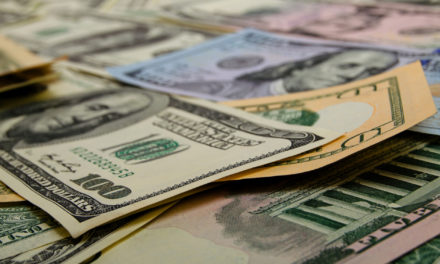
“When we own portions of outstanding businesses with outstanding managements, our favorite holding period is forever.”
— Warren Buffett
The investment philosophy practiced by Warren Buffett calls for investors to take a long-term horizon when making an investment, such as a two-decade holding period (or even longer), and reconsider making the investment in the first place if unable to envision holding the stock for at least five years. Today, we look at how such a long-term strategy would have done for investors in Raytheon Technologies Corp (NYSE: RTX) back in 2002, holding through to today.
| Start date: | 11/22/2002 |
|
|||
| End date: | 11/21/2022 | ||||
| Start price/share: | $40.04 | ||||
| End price/share: | $96.20 | ||||
| Starting shares: | 249.75 | ||||
| Ending shares: | 387.66 | ||||
| Dividends reinvested/share: | $26.66 | ||||
| Total return: | 272.93% | ||||
| Average annual return: | 6.80% | ||||
| Starting investment: | $10,000.00 | ||||
| Ending investment: | $37,302.52 | ||||
As shown above, the two-decade investment result worked out well, with an annualized rate of return of 6.80%. This would have turned a $10K investment made 20 years ago into $37,302.52 today (as of 11/21/2022). On a total return basis, that’s a result of 272.93% (something to think about: how might RTX shares perform over the next 20 years?). [These numbers were computed with the Dividend Channel DRIP Returns Calculator.]
Dividends are always an important investment factor to consider, and Raytheon Technologies Corp has paid $26.66/share in dividends to shareholders over the past 20 years we looked at above. Many an investor will only invest in stocks that pay dividends, so this component of total return is always an important consideration. Automated reinvestment of dividends into additional shares of stock can be a great way for an investor to compound their returns. The above calculations are done with the assuption that dividends received over time are reinvested (the calcuations use the closing price on ex-date).
Based upon the most recent annualized dividend rate of 2.2/share, we calculate that RTX has a current yield of approximately 2.29%. Another interesting datapoint we can examine is ‘yield on cost’ — in other words, we can express the current annualized dividend of 2.2 against the original $40.04/share purchase price. This works out to a yield on cost of 5.72%.
Another great investment quote to think about:
“You get recessions, you have stock market declines. If you don’t understand that’s going to happen, then you’re not ready, you won’t do well in the markets.” — Peter Lynch




